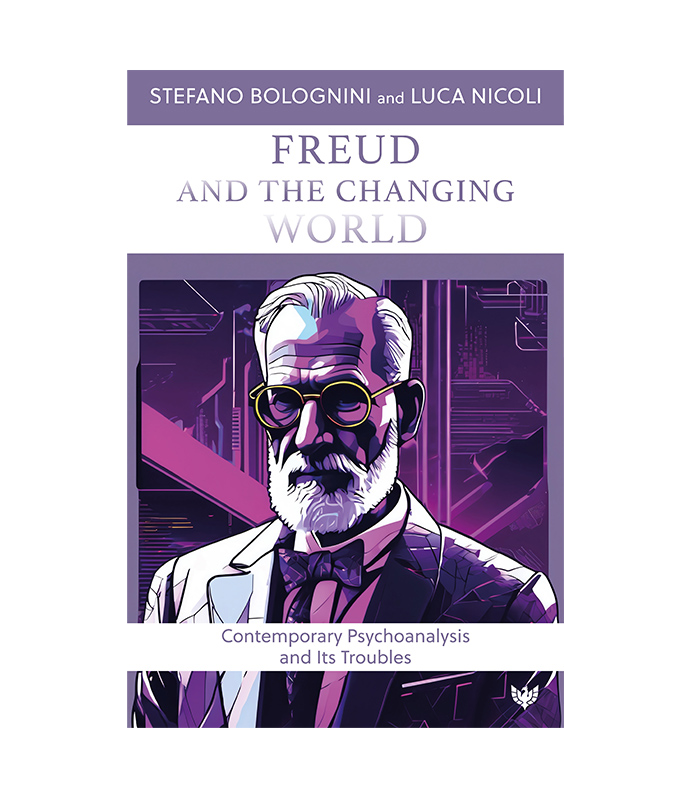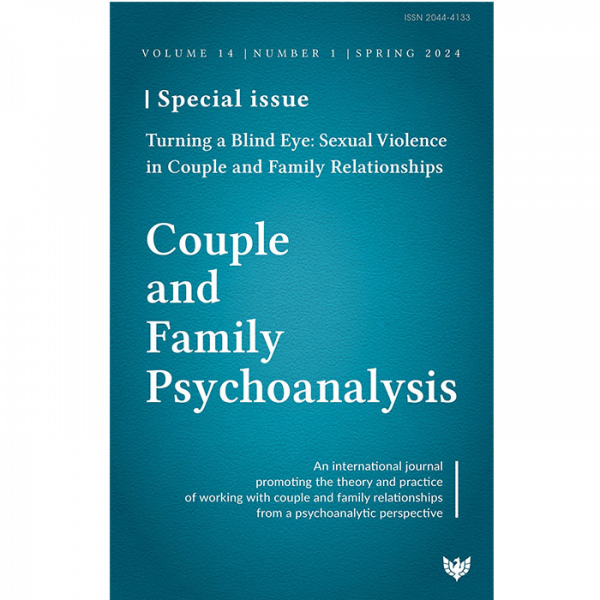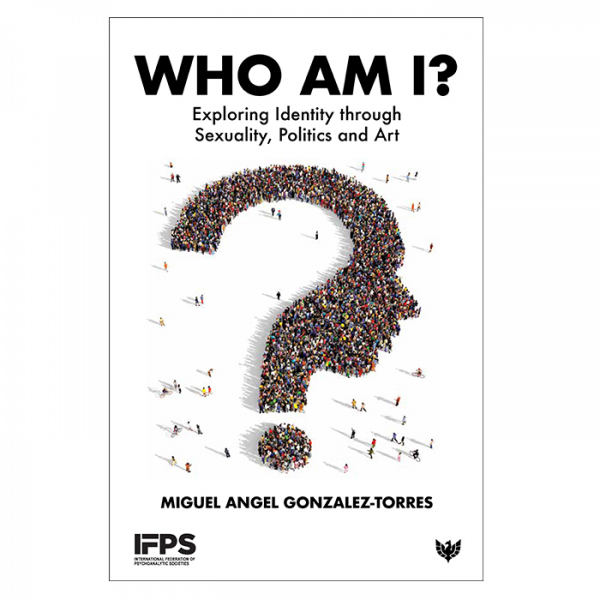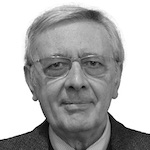A highly original, convivial dialogue between two leading psychoanalysts invites the reader to pause and reflect on current transformations and emotional affects in a changing world. Two analysts of different generations dialogue openly on the psychoanalytic experience, the relationship between patient and analyst, and the setting that continually comes to life in the session. Key themes discussed include social changes, the need to emotionally tune in to the distrust of today’s patients, online therapies, public mental health services, and new forms of sexuality and relationships. The heart of the book deals with major changes in psychoanalysis, whereby ‘how’ to talk to patients and how to approach them is just as important as ‘what’ is said in the consulting room. The limited use of technical terms promotes the book’s usability in every chapter and makes it accessible to every type of reader. Where technical terms are inescapable, a useful glossary is provided to explain these key concepts, providing clarity and understanding of the psychoanalytic field. The perfect book to illuminate the continuing contribution of psychoanalysis to the world.





 Stefano Bolognini is a psychiatrist and a training and supervising analyst of the Italian Psychoanalytic Society (SPI). He is former President of the SPI and past President of the International Psychoanalytical Association (IPA), after having been IPA board representative for two mandates and member and chair of several IPA committees. He is a former member of the European editorial board of the International Journal of Psychoanalysis and of the European Psychoanalytical Federation (EPF) theoretical working party. He is also honorary member of the New York Contemporary Freudian Society (CFS), the Los Angeles Institute and Society for Psychoanalytic Studies (LAISPS), and the Florence Psychoanalytic Center (CPF), and a member of the advisory board of the International Psychoanalytic University of Berlin (IPU). He was the founder of the IPA Inter-Regional Encyclopedic Dictionary of Psychoanalysis (IRED) and former chair. He has published over 280 psychoanalytic papers and eight books, including Vital Flows between the Self and Non-Self: The Interpsychic (Routledge, 2022), which won the 2023 Gradiva Award. Dr Bolognini lives and works in Bologna, Italy.
Stefano Bolognini is a psychiatrist and a training and supervising analyst of the Italian Psychoanalytic Society (SPI). He is former President of the SPI and past President of the International Psychoanalytical Association (IPA), after having been IPA board representative for two mandates and member and chair of several IPA committees. He is a former member of the European editorial board of the International Journal of Psychoanalysis and of the European Psychoanalytical Federation (EPF) theoretical working party. He is also honorary member of the New York Contemporary Freudian Society (CFS), the Los Angeles Institute and Society for Psychoanalytic Studies (LAISPS), and the Florence Psychoanalytic Center (CPF), and a member of the advisory board of the International Psychoanalytic University of Berlin (IPU). He was the founder of the IPA Inter-Regional Encyclopedic Dictionary of Psychoanalysis (IRED) and former chair. He has published over 280 psychoanalytic papers and eight books, including Vital Flows between the Self and Non-Self: The Interpsychic (Routledge, 2022), which won the 2023 Gradiva Award. Dr Bolognini lives and works in Bologna, Italy. Luca Nicoli is a full member of the Italian Psychoanalytic Society (SPI) and the International Psychoanalytical Association (IPA). He was formerly adjunct professor at the Faculty of Psychology, University of Parma, and is currently a lecturer at the Alma Mater Studiorum University of Bologna Specialisation School of Psychotherapy. He has been an editorial member of the Italian Journal of Psychoanalysis, and is currently a reviewer for the International Journal of Psychoanalysis. He has published in Italian and international scientific journals, as well as several psychoanalytic books. The popular book The New Analyst’s Guide to the Galaxy: Questions about Contemporary Psychoanalysis, co-written with Antonino Ferro (Karnac, 2017), has been translated into five languages.
Luca Nicoli is a full member of the Italian Psychoanalytic Society (SPI) and the International Psychoanalytical Association (IPA). He was formerly adjunct professor at the Faculty of Psychology, University of Parma, and is currently a lecturer at the Alma Mater Studiorum University of Bologna Specialisation School of Psychotherapy. He has been an editorial member of the Italian Journal of Psychoanalysis, and is currently a reviewer for the International Journal of Psychoanalysis. He has published in Italian and international scientific journals, as well as several psychoanalytic books. The popular book The New Analyst’s Guide to the Galaxy: Questions about Contemporary Psychoanalysis, co-written with Antonino Ferro (Karnac, 2017), has been translated into five languages.
Glen O. Gabbard, MD, training and supervising analyst, Center for Psychoanalytic Studies, Houston, Texas –
‘Freud and the Changing World: Contemporary Psychoanalysis and Its Troubles is a much-needed overview of the psychoanalytic enterprise as we know it today. Stefano Bolognini and Luca Nicoli have written a brilliant synopsis of where we stand today and where we need to go if we wish to advance our field. I highly recommend this book for all psychoanalysts and those who care about our profession.’
Fred Busch, training and supervising analyst, Boston Psychoanalytic Society & Institute; author of many papers and eight books –
‘In this slim volume we meet Stefano Bolognini as the ego ideal for contemporary psychoanalysts. He is wise in a humane and psychoanalytic sense and integrates what is meaningful from our psychoanalytic forefathers with recent perspectives. His understanding of psychoanalytic concepts is exemplary, while his elaborations of certain ideas help the clinician understand them with greater depth. He uses his wide-ranging knowledge (from Cicero to Sylvester the cat) as bridges to elaborate psychoanalytic ideas. It is a pleasure and enlightening to spend several hours with this sagacious analyst. Luca Nicoli serves as an inspiring interlocuter.’
Howard B. Levine, editor-in-chief, The Routledge Wilfred R. Bion Studies Book Series –
‘This book, cast in the form of an intimate dialogue, stands as a delightful reminder to psychoanalysts of all levels of experience and to the general public, that far from being in crisis, or even dead, the psychoanalysis of the twenty-first century still has much to offer as both a therapy and as a powerful perspective from which to explore the human condition. As noted in the introduction, it is the “red thread of a reflection on contemporaneity [that] guides the development of all the chapters of the book: both in referring to the characteristics and critical issues that define the global context in which we live, and in pointing out clearly what it can mean to ‘do psychoanalysis’ today”.’
Thomas Ogden, author of Coming to Life in the Consulting Room and Reclaiming Unlived Life –
‘Stefano Bolognini and Luca Nicoli offer an insightful and beautifully written view of the cutting edge of psychoanalytic theory and practice. Bolognini is one of the foremost analytic thinkers writing today and a gifted teacher; Nicoli is a keenly observant questioner. In language free of technical terms and free of cliché, Bolognini describes his way of thinking about essential analytic concepts such as the unconscious, the analytic field, transference, countertransference, gender, and the self. In lively dialogue with Nicoli, he describes his way of giving these concepts life in the analytic experience and in the contemporary analytic dialogue. This book is essential reading both for those early in their development as analytic practitioners and experienced therapists and psychoanalysts.’
Louise Smith MBACP (Accred), integrative psychotherapist, ‘Therapy Today’, March 2025, Volume. 36:2 –
‘This book is an authoritative and realistic assessment of the pressing issues and signs of hope. The format, which mirrors the psychoanalytic encounter itself, means their discussion will be most interesting and accessible to psychoanalysts and those in training or considering it.’
M. Uebel, University of Texas, CHOICE Magazine, November 2025 –
‘Bolognini and Nicoli offer readers a special opportunity to observe two brilliant psychoanalytic minds in dialogue […] Truly impressive is the absolute accessibility of the ideas, such that readers do not have to be analysts themselves to understand them […] This book is necessary reading for anyone who doubts the relevance of psychoanalysis for the 21st century and all its challenges.’
Reprinted with permission from Choice Reviews, copyright by the American Library Association
Iuri Conceicao, The Psychoanalytic Quarterly, 5 November 2025 –
‘The dialogue between the two interlocutors is engaging, lively, dense, and the conversational field gets expanded progressively by the exploration and exchange of ideas, free associations, clinical examples, and personal experiences […] This book is an interesting read for clinicians who want to know more about the changes in contemporary subjectivity and psychopathology and how to better conceptualize and address such issues in the consulting room.’